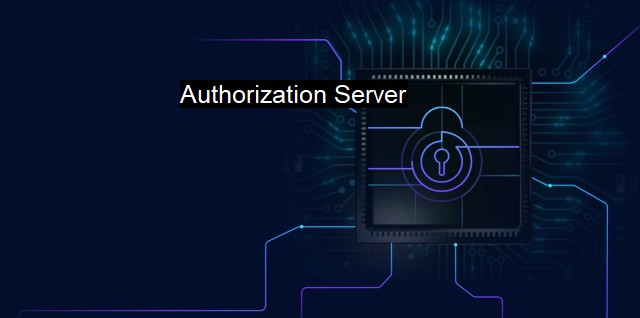What is Authorization Server?
Harnessing the Power of the Authorization Server: Securing Access Control and Authentication in the Digital Age
An authorization server is a significant component of the cybersecurity architecture, specially involving protocols such as OAuth 2.0, OpenID Connect, and others that deal with granting and managing the permissions or access rights over specific resources in the network infrastructure. At its core, the server is responsible for ensuring that users are provided with the necessary permissions, managing those permissions, and guaranteeing them appropriately and effectively.The importance of this security aspect cannot be understated, especially in the intricate, interconnected world of internet connections and applications that are now the norm rather than the exception. Digital interaction is a foundational part of modern technology, widening the vulnerabilities and risks posed to data and information. The Salesforce Platform explicitly explicates the state of universal distrust given the cybersecurity threats over the internet. As such, a robust and resilient stand is taken towards verifying the individual or application accessing the permissioned platforms, web-based applications, or resources – maintaining and monitoring the access controls and ensuring the limited options of excess or violations.
To understand the function of the authorization server, it is beneficial to become familiar with OAuth 2.0, a protocol largely designed to allow third-party applications to authorize access to the server resources without the user needing to share the security credentials. Here, the authorization server helps by authenticating the user's identity (generating a list of roles and privileges linked to the user's profile), and then issuing an access token delegated with the approved roles and privileges, which could then be used for subsequent interactions with the resource server. The resource server generally validates the authenticity of the access token with the authorization server before executing a client application request represented by that token.
Stated very simply, an authorization server works as a passport office for access to certain nodes or portals on the internet. You apply for a visa (or access), the passport office checks your details, and if everything checks out okay, you get a "visa" or "passport," which proves your identity and authorization to enter certain web-based applications.
Antivirus software has a crucial but distinctive role in cybersecurity contrary to authorization servers. While these servers emphasize permissions and access controls for Internet applications and web platforms, antivirus software is generally geared towards thwarting malware – programs consisting of computer viruses, Trojans, worms, spyware, adware, and more similar threats. Hence, the role of antivirus software includes scanning, defending, thwarting, and removing such malicious threats. An antivirus system extensively scans and monitors the digital system, looking for known threats via a database of known malware types. In case a suspicious program or file is found, the antivirus either blocks or puts them into quarantine for further action.
While an authorization server is geared towards providing adequate permissions within digital system infrastructures, an antivirus safeguards these digital systems from large-scale malware threats. Both are integral parts of the cybersecurity realm, focusing on easing the digital environment, enhancing development, boosting user friendliness and productivity, all while possessing a keen eye for saving the digital architecture from the unwarranted, suspicious, unhealthy, and possibly dangerous entities that pose cyber threats. Both these units, plus others not explicitly stated in this context, go hand in hand towards ensuring synchronized efforts for a successful cybersecurity strategy. In a world where digitalization is the new norm, effective cybersecurity implementation becomes far more than a necessity - it is a mission-critical business strategy layered with diligence, consistency, and adaptation.

Authorization Server FAQs
What is an authorization server?
An authorization server is a software component that manages the process of authorizing clients to access protected resources. It verifies the credentials of clients and issues access tokens to authorized clients.What is the role of an authorization server in cybersecurity?
In cybersecurity, an authorization server is used to authenticate and authorize clients who are attempting to access protected resources. It ensures that only authorized clients are able to access the resources and helps to prevent unauthorized access and data breaches.How does an authorization server differ from an antivirus software?
An authorization server and an antivirus software serve different purposes. An authorization server manages the process of authentication and authorization, while an antivirus software detects and removes malware from a device. However, both are important components in protecting against cyber threats.What are the security implications of using an authorization server?
Using an authorization server can improve security by ensuring that only authorized clients have access to protected resources. However, if the authorization server is compromised, it could lead to unauthorized access and data breaches. Therefore, it is important to ensure that the authorization server is properly configured and secured.| | A | | | B | | | C | | | D | | | E | | | F | | | G | | | H | | | I | | | J | | | K | | | L | | | M | |
| | N | | | O | | | P | | | Q | | | R | | | S | | | T | | | U | | | V | | | W | | | X | | | Y | | | Z | |
| | 1 | | | 2 | | | 3 | | | 4 | | | 7 | | | 8 | | |||||||